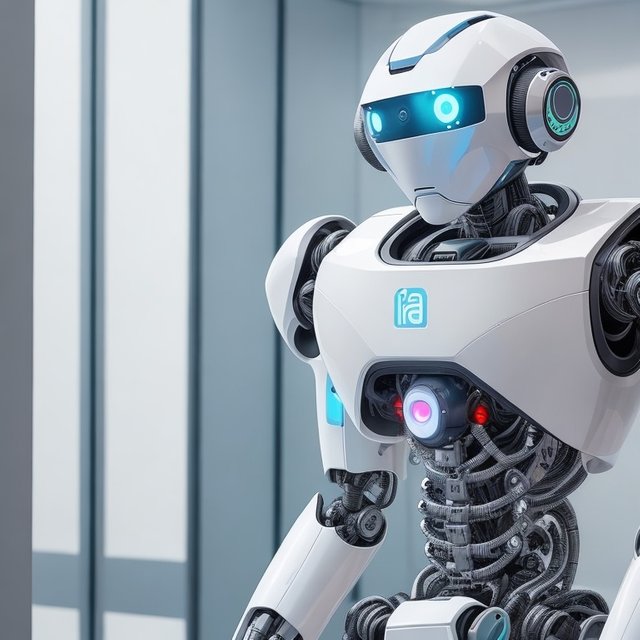Robots in Today's Society: Artificial Intelligence
Robots are becoming increasingly common in today's society, and artificial intelligence (AI) is playing a major role in their development. AI allows robots to learn and adapt, making them more capable and versatile.
Robots in the workplace
Robots are already widely used in the workplace, particularly in manufacturing and logistics. They are also used in a variety of other industries, such as healthcare, agriculture, and construction.
Robots can perform a wide range of tasks, including:
Assembling products
Welding and painting
Loading and unloading trucks
Picking and packing orders
Delivering packages
Performing surgery
Assisting with patient care
Harvesting crops
Inspecting bridges and roads
Building buildings
Robots in the home
Robots are also becoming more common in the home. Robotic vacuum cleaners, lawnmowers, and pool cleaners are already popular, and more advanced robots are in development.
Home robots can perform a variety of tasks, including:
Vacuuming and mopping floors
Mowing lawns
Cleaning pools
Providing security
Assisting with cooking and cleaning
Caring for the elderly and disabled
Benefits of robots
Robots offer a number of benefits, including:
Increased productivity: Robots can help to increase productivity by automating tasks that are currently performed by humans.
Improved safety: Robots can help to improve safety by performing tasks that are dangerous or hazardous for humans.
Reduced costs: Robots can help to reduce costs by automating tasks that are expensive to perform with human labor.
Improved quality: Robots can help to improve the quality of products and services by performing tasks with greater precision and accuracy than humans.
Enhanced capabilities: Robots can enhance human capabilities by performing tasks that are difficult or impossible for humans to do.
Challenges of robots
The use of robots also presents a number of challenges, including:
Job displacement: Robots are capable of performing many tasks that are currently done by humans, which could lead to job displacement.
Ethical concerns: There are a number of ethical concerns associated with the use of robots, such as the development of autonomous weapons and the potential for robots to be used to surveil and control people.
Safety concerns: Robots need to be designed and operated in a way that minimizes the risk of accidents and injuries.
The future of robots
As robot technology continues to develop, we can expect to see robots playing an even greater role in our lives. Robots are likely to become more intelligent, capable, and versatile. They will also become more affordable and accessible.
In the future, robots are likely to be used in an even wider range of applications, including:
Self-driving cars and trucks
Robotic surgery and other medical procedures
Robotic education and personalized learning
Robotic customer service and support
Robotic exploration of space and other dangerous environments
Conclusion
Robots are rapidly transforming our world. They are already being used in a wide range of applications, and their use is only going to increase in the future. Robots offer a number of benefits, but there are also some challenges associated with their use. It is important to carefully consider these challenges and to develop policies and regulations to ensure that robots are used responsibly.
